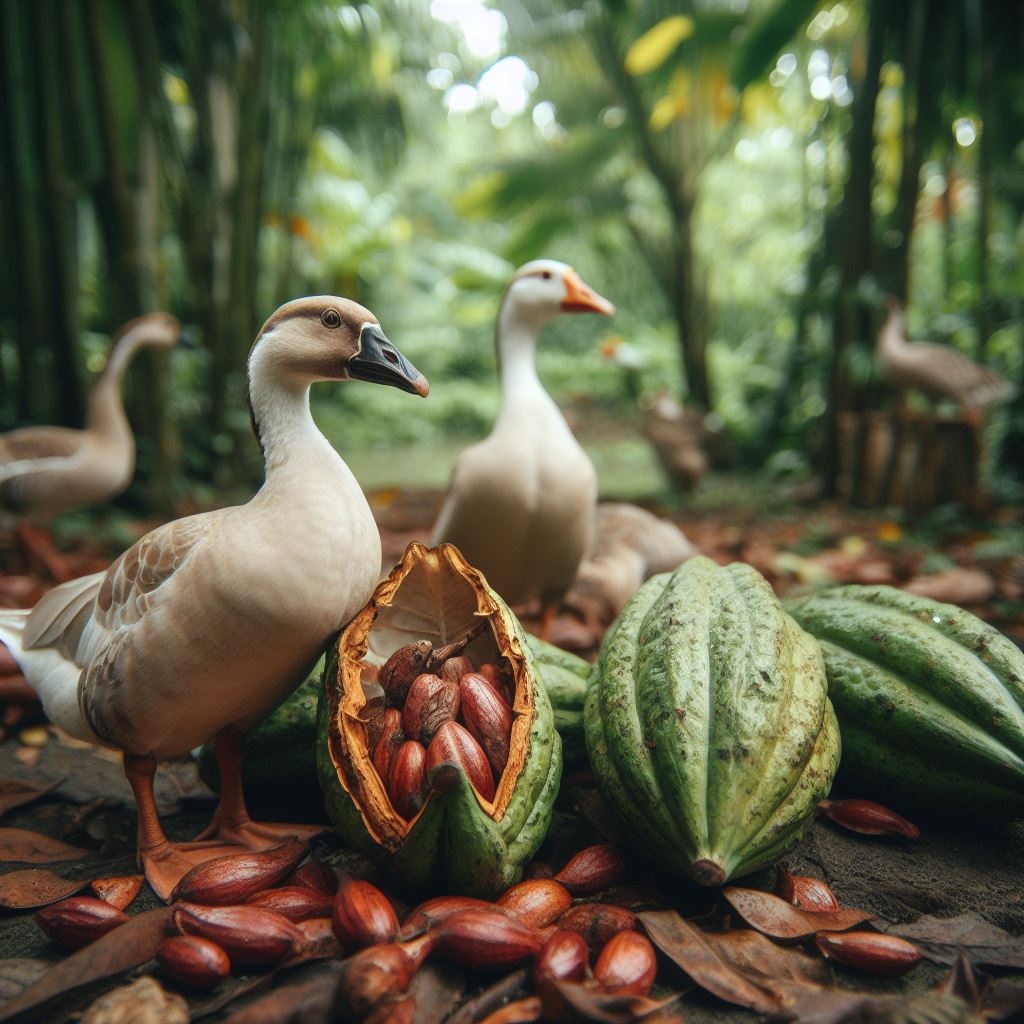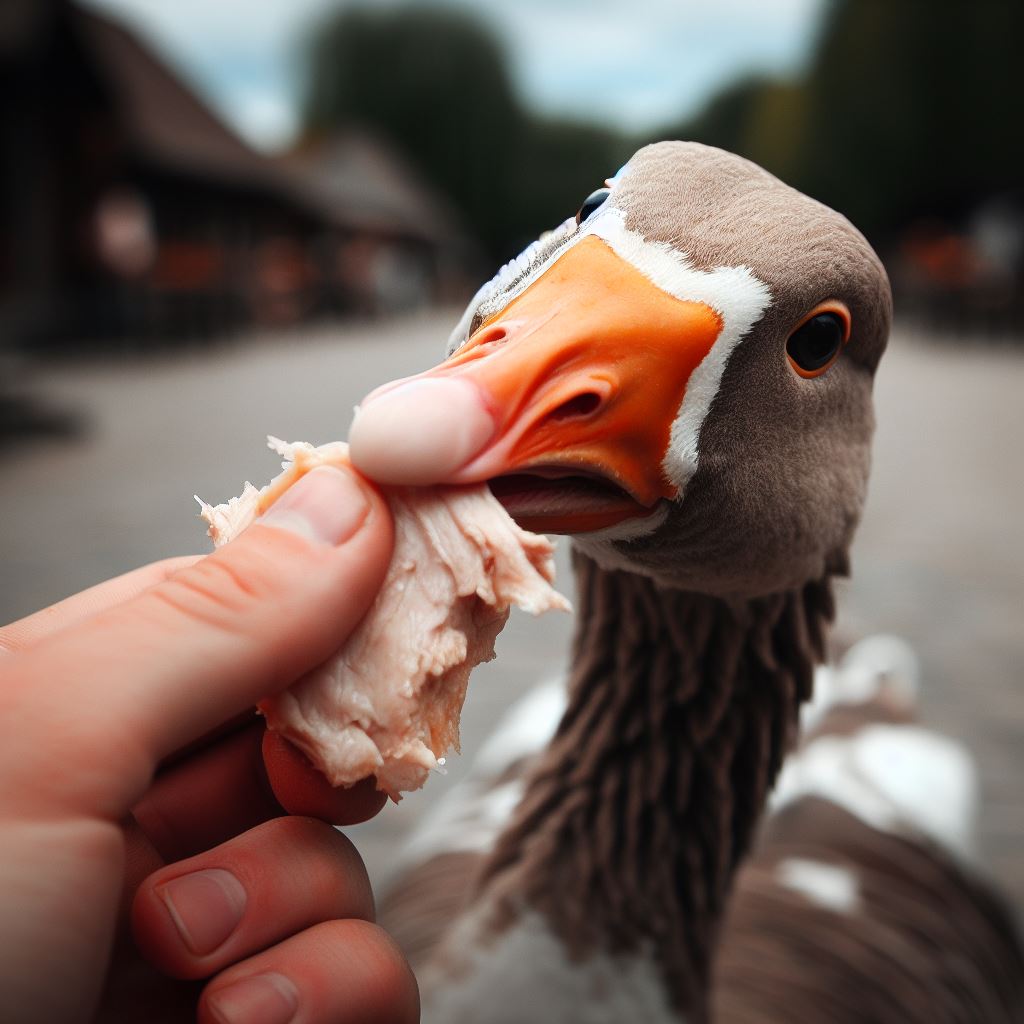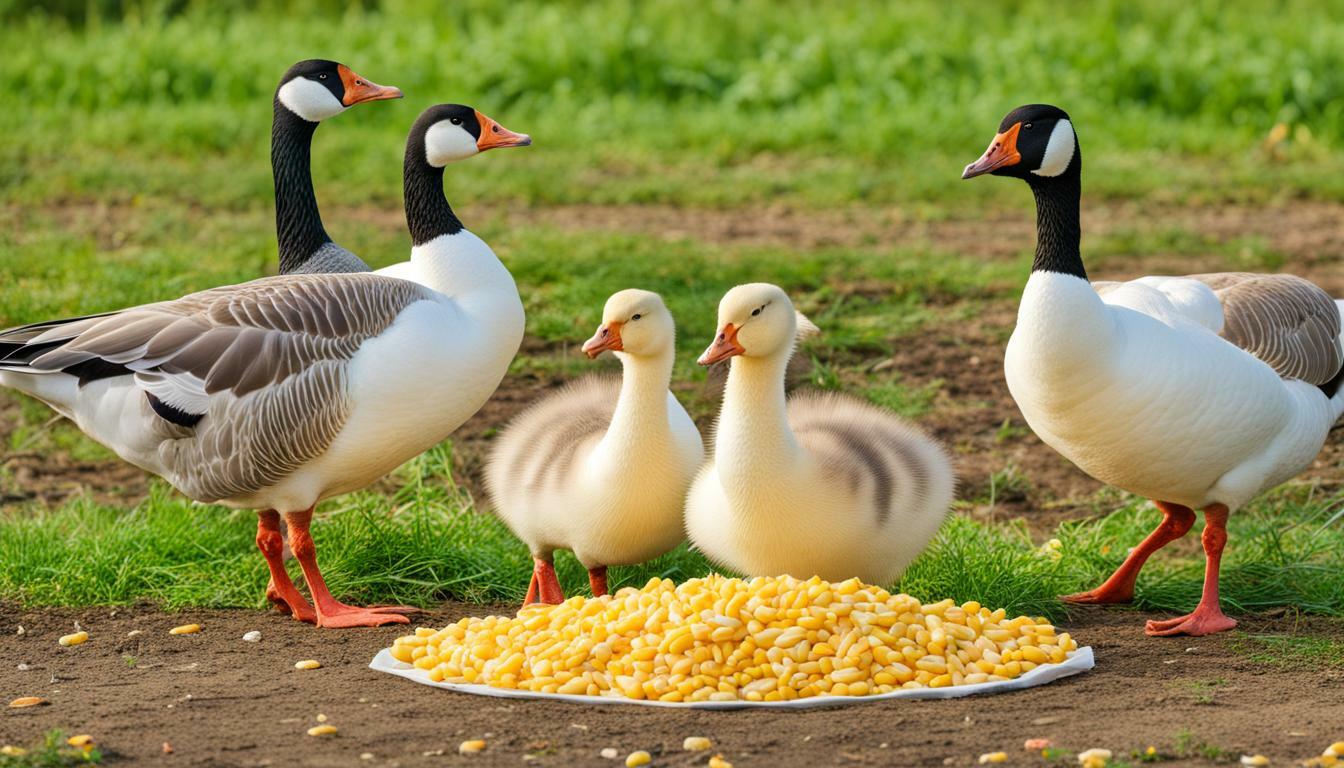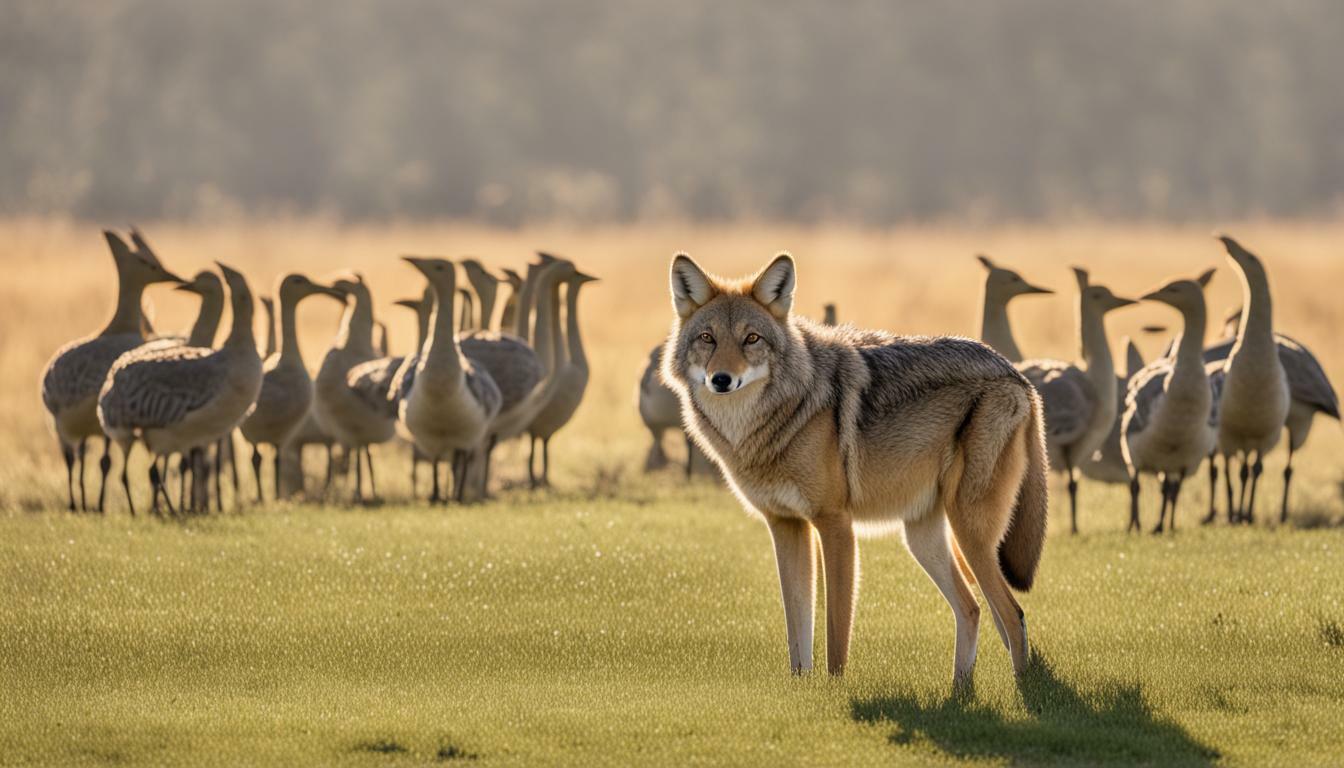Can Geese Eat Cucumbers? Benefits and Feeding Tips
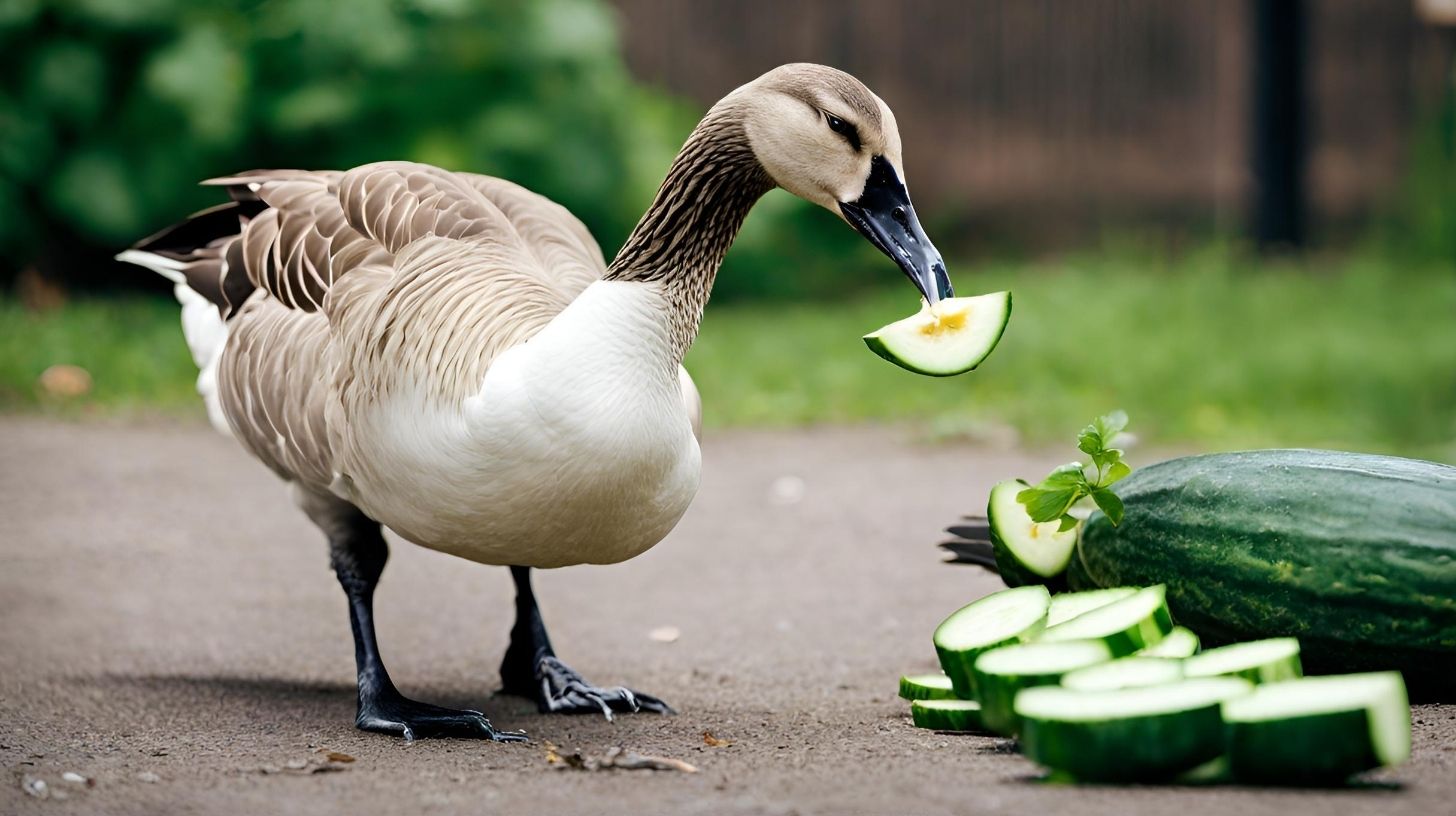
Table of content:
- Are Cucumbers Safe for Geese?
- Nutritional Benefits of Cucumbers for Geese
- Feeding Cucumbers to Pet Geese
- Feeding Cucumbers to Wild Geese
- How to Prepare Cucumbers for Geese
- How Much Cucumber Can Geese Eat?
- Cucumbers for Geese FAQs
- Can geese eat cucumber peels?
- Can geese eat yellow cucumbers?
- Can geese eat pickled cucumbers?
- Can geese eat raw cucumbers?
- Do geese like cucumbers?
- Is cucumber safe for baby geese?
- Can geese eat cucumber everyday?
- Do geese like all vegetables?
- What vegetables are toxic to geese?
- How much should you feed geese?
- What fruit and veg can geese eat?
- Conclusion
Cucumbers make a nutritious, hydrating, and refreshing treat for geese. Both domestic and wild geese can safely eat cucumbers. Cucumbers contain vitamins, minerals, and water that geese need in their diet.
Key Takeaways:
- Cucumbers are safe for geese to eat and provide nutrition like vitamins, minerals, and water.
- Geese enjoy cucumbers as a treat, but cucumbers should be fed in moderation as part of a balanced diet.
- Chop cucumbers into small, bite-sized pieces before feeding to geese for safety.
- Avoid feeding geese spoiled cucumbers or cucumber plants, as these can cause illness.
- Cucumbers offer geese hydration and nutrients but lack protein, so combine cucumber treats with grains and greens.
Geese seem to relish the crisp texture and mild, sweet flavor of cucumbers. Cucumber treats are a good way to bond with domestic geese. For wild geese, small amounts of cucumbers can supplement their natural foraging.
While cucumbers are a geese-safe food, they should be fed in moderation. Cucumbers lack protein and are low in calories. For balanced nutrition, cucumbers should be just a supplemental snack, not a staple food.
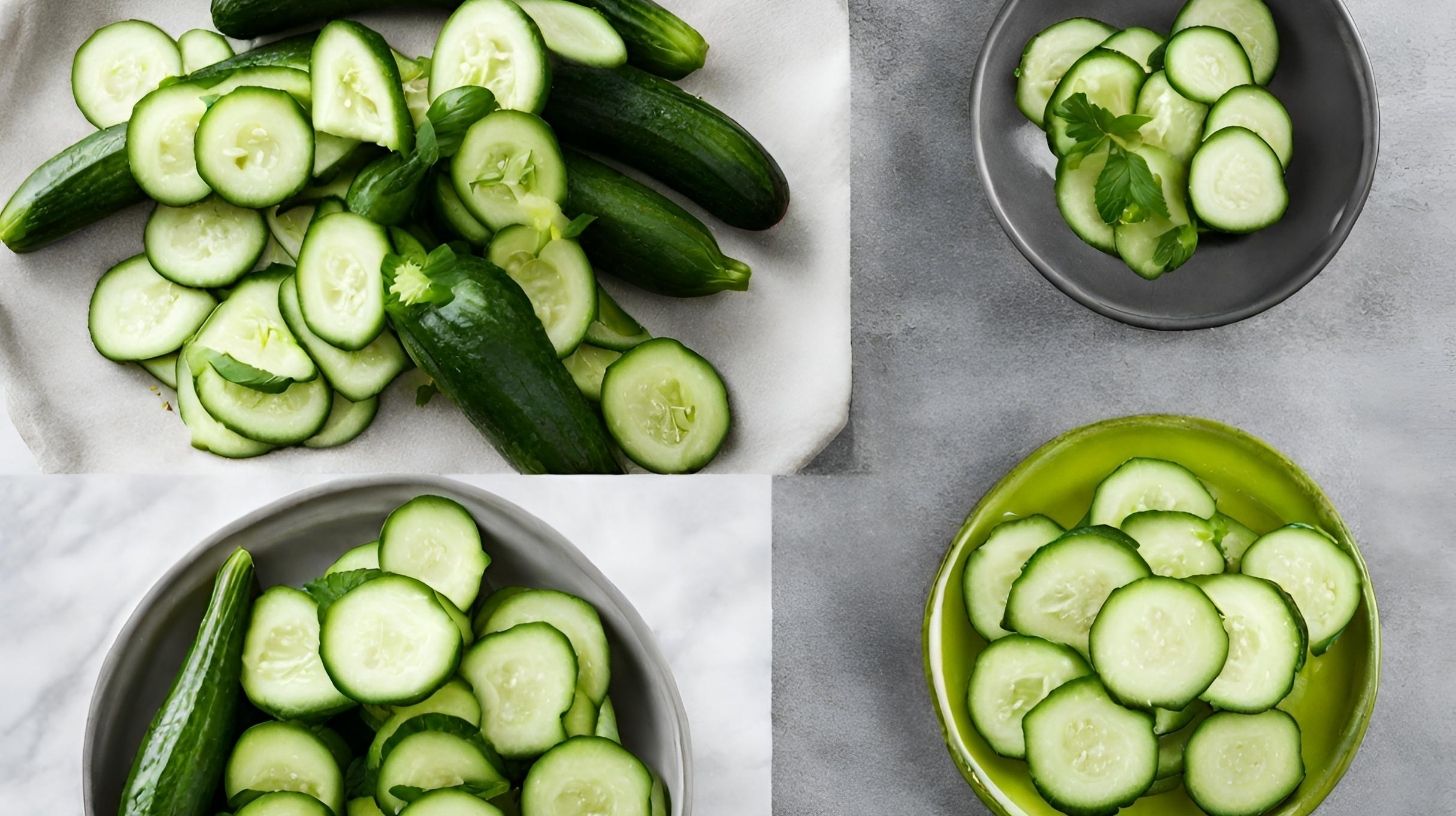 Are Cucumbers Safe for Geese?
Are Cucumbers Safe for Geese?
Cucumbers are non-toxic for geese and safe to feed in moderation. Both conventional and organic, garden-grown cucumbers can be fed to geese.
The main safety precaution is to cut cucumbers into appropriately sized pieces before feeding to prevent choking. Cucumber slices should be chopped into dice-sized bits no larger than 0.5 cubic inches for geese to safely swallow.
Cucumbers straight from the garden or produce section make the healthiest choice. Avoid feeding geese spoiled cucumber pieces, which could cause upset stomach.
Cucumber plants should also not be offered to geese. The leaves and vines of cucumber plants can contain a compound called cucurbitacin that gives a bitter taste and may cause illness in geese if ingested.
Nutritional Benefits of Cucumbers for Geese
While not a complete source of nutrition, cucumbers do provide some useful vitamins, minerals, and hydration for geese:
- Water Content: Cucumbers are 95% water, offering geese hydration. Staying hydrated supports digestion and goose health overall.
- Vitamin K: Cucumbers contain vitamin K, which supports bone and feather growth in geese.
- Vitamin C: Vitamin C in cucumbers acts as an antioxidant. It boosts the immune system and helps geese absorb iron.
- Potassium: Cucumbers provide potassium, an electrolyte mineral for fluid balance and muscle and nerve functioning.
- Fiber: Fiber in cucumber skin promotes healthy digestion and nutrient absorption for geese. It helps geese feel full.
While nutritious in moderation, cucumbers are low in calories, protein, fat, and other key goose nutrients. Cucumber treats should be paired with other foods like greens, grains, seeds, and the occasional protein source for balanced nutrition.
Feeding Cucumbers to Pet Geese
Here are some tips for safely feeding cucumbers to pet geese:
- Wash cucumbers and cut into 0.5 inch or smaller pieces to prevent choking.
- Offer chopped cucumbers in a bowl or spread out so geese don’t compete over treats.
- Start with a few small pieces per goose to see if they like the taste.
- Feed cucumber treats after geese eat main food so they don’t fill up on low-calorie snacks.
- Combine with greens, whole grains, seeds or chopped boiled eggs for balanced nutrition.
- Limit cucumber treats to a few times a week to prevent overfeeding.
Offering chopped cucumber pieces from your hand can also be a good trust-building exercise with pet geese.
Feeding Cucumbers to Wild Geese
Wild geese enjoy finding bits of cucumber as they graze naturally. Here are some tips for supplementing the diets of wild geese with cucumber snacks:
- Chop cucumbers into tiny, .25 inch or smaller pieces that are easy for geese to swallow while foraging on land or water.
- Scatter small amounts of cucumber pieces in grassy areas and marshes where geese frequent.
- Start with just a handful of treats in one spot to see if geese take interest.
- Increase amounts and distribute in a few different grazing areas if geese enjoy the snacks.
- Offer just once daily or a few times a week so treats don’t disrupt natural foraging behaviors.
- Avoid leaving piles of uneaten cucumber pieces, which can rot and become moldy if not consumed quickly.
- Do not feed geese directly by hand, as this can make wild geese become too reliant on human food sources.
How to Prepare Cucumbers for Geese
Follow these simple steps for preparing cucumber treats safely for geese:
- Select fresh, firm cucumbers. Choose conventional or organic cucumbers free from mold, damage, or sliminess. Rinse dirt.
- Wash cucumbers. Thoroughly wash cucumbers under running water to remove dirt and residues.Dry cucumbers with a clean towel.
- Peel cucumbers (optional). For easier digestion, peel thin skin off cucumbers with a vegetable peeler. Leaving skin on is also fine for geese.
- Chop cucumbers. Cut cucumbers lengthwise, then chop into 0.25 to 0.5 inch dice pieces for easy swallowing.
- Portion into a clean bowl or pan. Place chopped cucumber pieces into a clean container reserved for goose treats.
Follow basic food safety. Avoid cross-contamination by using designated goose utensils and bowls. Refrigerate prepared cucumbers if not feeding immediately.
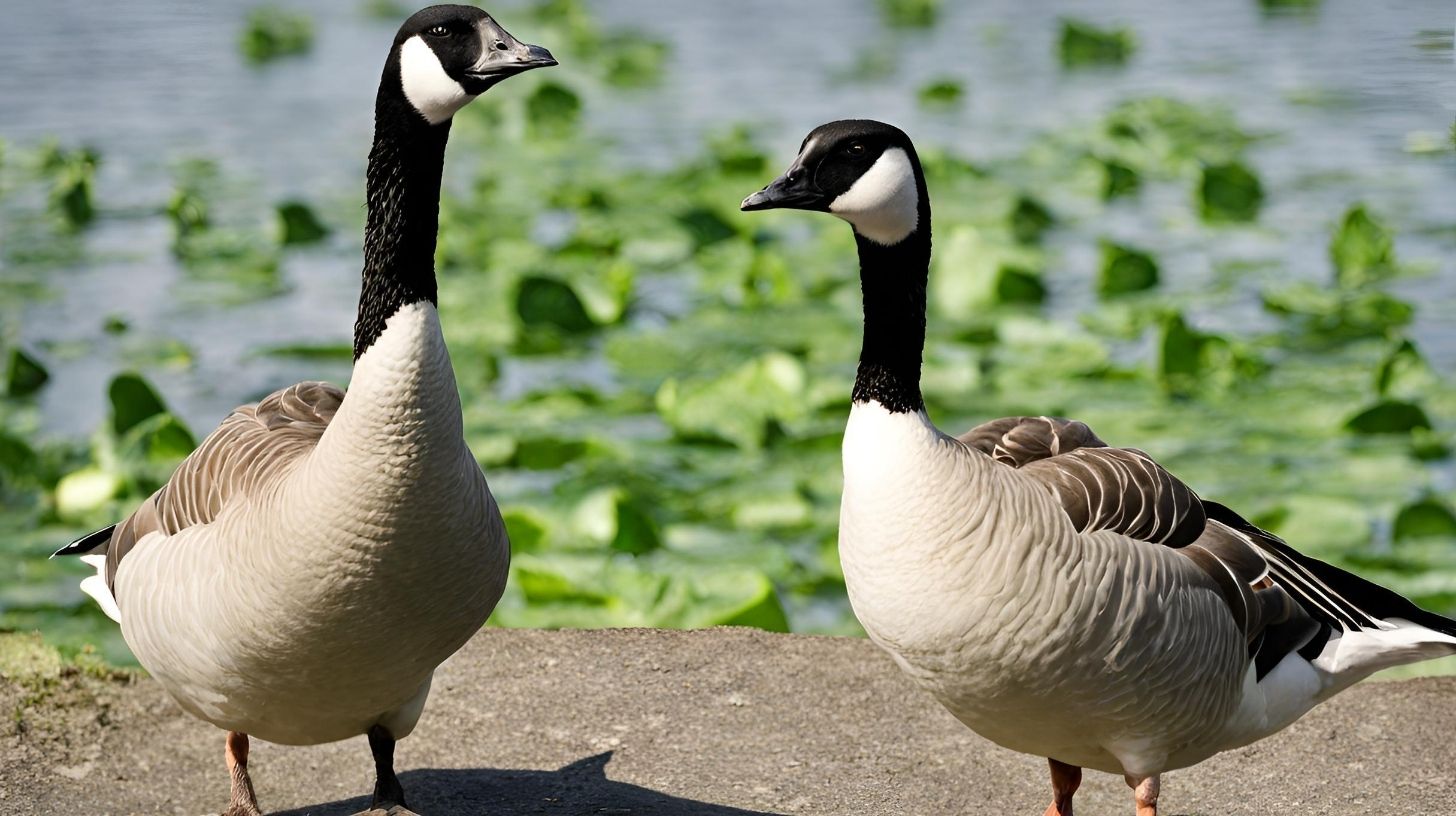 How Much Cucumber Can Geese Eat?
How Much Cucumber Can Geese Eat?
Cucumbers should be limited to occasional treat amounts for geese. As a rule of thumb:
- Pet geese can eat 1 to 2 ounces chopped cucumber 2 to 3 times per week.
- For wild geese, offer no more than 0.5 ounces (a handful) of chopped cucumber per goose daily.
Monitor to ensure geese are eating adequate amounts of main diet foods like greens, seeds, and grains. Overfeeding cucumbers could decrease appetite for more balanced meals.
Signs of overfeeding cucumbers include loose droppings or diarrhea. If these symptoms occur, discontinue cucumber treats. Introduce them again more moderately once digestion normalizes.
| Term | Variations |
|---|---|
| Geese | Goose |
| Cucumbers | Cucumber |
| Feeding | Feed, Foods |
| Diet | Diets, Nutrition |
| Wild | Migratory, Canada, Snow |
| Domestic | Toulouse, African, Chinese |
| Vegetable | Veggie, Produce |
| Toxic | Poisonous |
| Raw | Fresh, Uncooked |
| Seeds | Seed |
| Fruit | Produce |
| Graze | Forage, Browse |
| Wildlife | Animals, Waterfowl |
| Bird | Waterfowl, Water birds, Fowl |
| Duck | Mallard, Dabbling Ducks |
| Swan | Mute Swan, Trumpeter Swan |
| Herbivore | Plant Eater |
| Omnivore | Varied Diet |
| Greens | Vegetables, Lettuce, Grass |
| Crop | Pouch |
| Gizzard | Stomach |
| Digestion | Digest |
| Fiber | Dietary Fiber |
| Vitamins | Vitamin |
| Minerals | Mineral |
| Sugar | Natural Sugars |
| Hydration | Water |
| Foraging | Grazing, Feeding |
| Domestication | Tame, Pet |
| Protein | Meat, Eggs |
| Backyard | Garden |
Cucumbers for Geese FAQs
Can geese eat cucumber peels?
Yes, geese can safely eat the skin and peel of cucumbers. Leaving the peel provides added fiber for digestion. If the peel seems difficult to digest, try peeling cucumbers before feeding geese.
Can geese eat yellow cucumbers?
Yes, yellow cucumbers are safe for geese. Their nutrition and cucumber flavor are similar to green varieties. Introduce yellow cucumber treats the same ways as green cucumbers.
Can geese eat pickled cucumbers?
Avoid feeding geese pickled cucumbers, like those found on hamburgers or in relish. The high sodium content of pickling brines can cause health issues for geese.
Can geese eat raw cucumbers?
Yes, geese can safely eat raw cucumbers. In fact, cucumbers are best fed raw, not cooked. Raw cucumbers retain the most nutrients and crunchy texture geese enjoy.
Do geese like cucumbers?
Most geese seem to relish cucumbers as a treat! Their fondness for the juicy crunch makes cucumber pieces a great supplement to the goose diet. Try offering bits of cucumber yourself to see if your geese take a liking to them.
Is cucumber safe for baby geese?
Yes, cucumber is safe for goslings to eat. Chop cucumber into very small, thin bits to prevent choking. Wait until goslings are eating mature goose food before introducing treats.
Can geese eat cucumber everyday?
No, cucumbers should not be fed daily. Feed cucumber treats just 2-3 times per week to avoid overfeeding. Cucumber lacks key nutrients geese need daily from grains, greens, and protein sources.
Do geese like all vegetables?
Geese enjoy and can safely eat many vegetable treats like lettuce, peas, sweet potato, squash, and zucchini in addition to cucumbers. Avoid raw potato skins, dried beans, garlic, and onions, which can cause illness in geese. Introduce new veggies gradually.
What vegetables are toxic to geese?
Raw potato skins, dried beans, garlic, onions, avocado pits and skins, and rhubarb leaves are among the vegetables and parts that are unsafe and toxic for geese to consume.
How much should you feed geese?
Adult geese eat about 0.25-0.5 pounds of food daily. Feed a balanced diet of about 75% grass/greens, 20% grains, and 5% protein sources. Treats like cucumber should be under 10% of intake. Adjust amounts based on energy needs.
What fruit and veg can geese eat?
Geese can eat treats like chopped apple, melon, banana, berries, squash, peas, broccoli, sweet potato, zucchini, lettuce and other greens, and moderate amounts of beet, carrot, corn, and cucumber. Avoid avocados, dried beans, potatoes, and rhubarb.
Conclusion
Cucumbers make a safe, nutritious treat for pet geese or to supplement the diets of wild geese. Their high water content and vitamins like K and C provide useful nutrition for geese. Still, cucumbers should be fed in moderation along with more balanced diet staples. Chop cucumbers into small pieces for easy swallowing before feeding geese. With some safe precautions, cucumber treats can be an enjoyable way to bond with pet geese while also supporting the health of wild flocks.
Welcome. I’m Adreena Shanum, the proud owner of this website, and I am incredibly passionate about animals, especially poultry. I founded adreenapets.com as a labor of love, stemming from my desire to share my knowledge and experiences with poultry enthusiasts worldwide.

